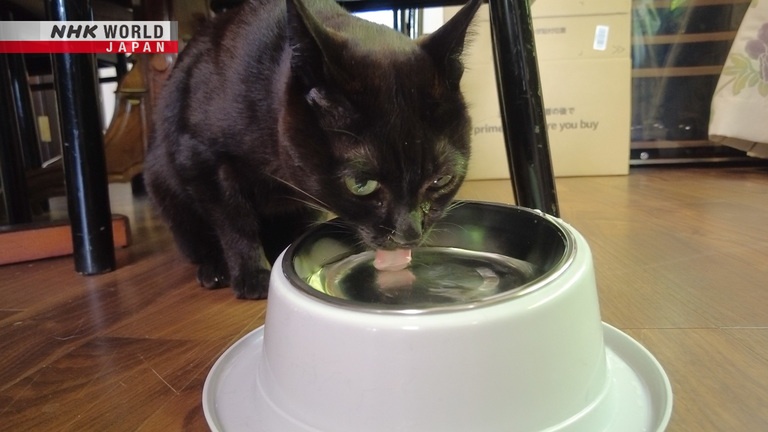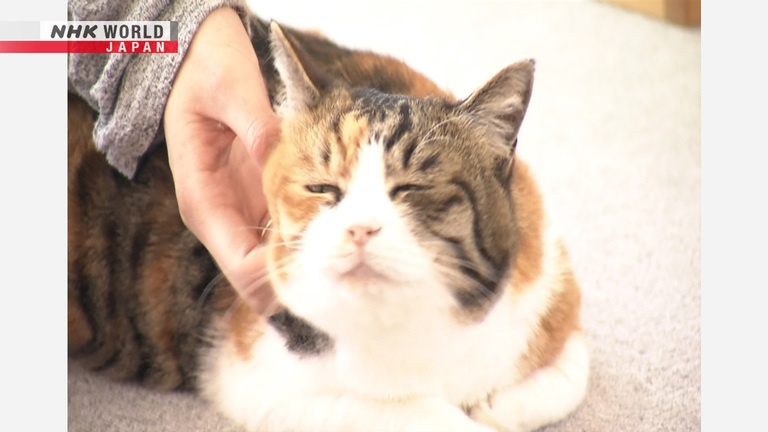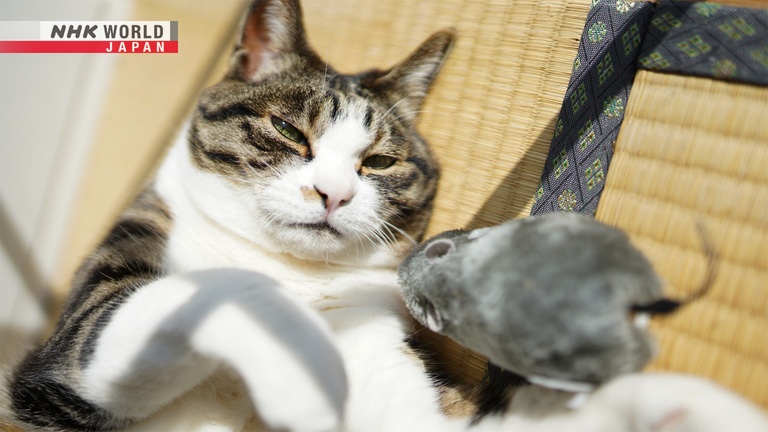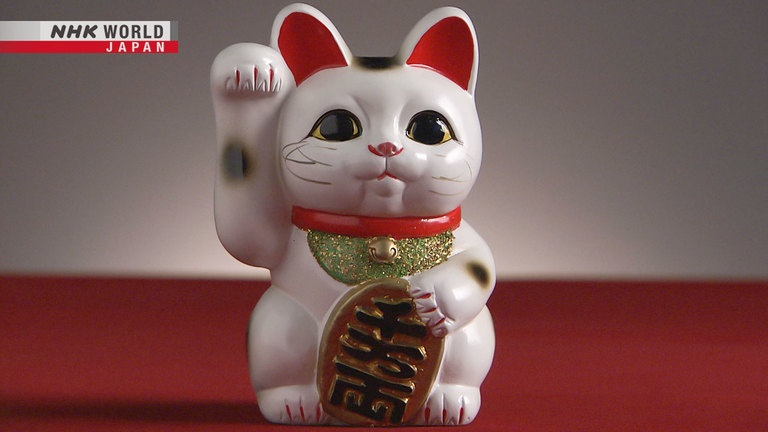Cat
The Japanese language is rich in words and expressions influenced by nature, history and culture. This episode looks at words and phrases related to cats. Cats have been treasured in Japan for a long time as a way to deal with mice. This long history is reflected in the many expressions related to cats in Japanese. From his home in Kyoto Prefecture, poet and literary translator Peter MacMillan guides us through these words and the culture behind them.




Transcript
"Yukigesho."
"Karakurenai."
The Japanese language is rich in unique expressions that reflect nature and culture.
Magical Japanese.
Today's theme is "cat," or "neko."
Hello, I'm Peter MacMillan.
Do you like cats?
There are around ten million cats that are kept as pets in Japan, even more than the number of dogs!
I have four cats, and this one is called Rose.
Cats have been treasured in Japan for a long time as a way to deal with mice.
There is a long history of people living with cats, and because of that there are also many expressions related to cats in Japanese.
"nekojita."
Cats dislike piping hot food, so saying you have a "nekojita" or "cat tongue" means that you prefer your food at a lower temperature.
"nekojita."
"neko no hitai."
"Hitai" is one way to say forehead.
Since a cat's forehead is narrow, "neko no hitai" is an expression used to describe small spaces.
You might hear a conversation like this: I hear you bought a house with a yard.
Congratulations!
It's hardly a yard. Land is expensive,
so it's as tiny as a "neko no hitai."
The expression is often used in a self-depreciating way.
It's best to avoid using it to describe someone else's belongings.
"nekonadegoe."
This phrase refers to the soft, flattering voice used in order to humor someone, to butter them up.
It comes from the fact that it resembles the voice of someone petting a cat.
Are there any people in your life that talk to you sweetly to make you be affectionate towards them?
Like this: "Hello, Rose. Sweet girl."
"You're so clever, aren't you? Such a clever girl."
"nekonadegoe."
So, how did cats make their way to Japan?
Most of them came around the same time as the arrival of Buddhism, in the 6th century.
It's thought that they were brought here from China by boat, to protect sūtra texts from mice.
Cats are known to be very good mice hunters.
And there is an expression that comes from this.
"kyuso neko o kamu."
This saying means, 'a cornered mouse, or "kyuso" will bite a cat.' It's a warning that when desperate, even a weak person will fight back.
"Kyuso neko o kamu."
This expression comes from a Chinese economics text written in the second century BC.
This expression came to Japan along with the cats.
Be careful not to push people too far, or they may push back.
"kyuso neko o kamu."
In the Heian period, when cats were still rare in Japan, aristocrats treasured them as pets.
Emperor Ichijō was especially known for his love of cats.
There's a magical story in Sei Shōnagon's "Pillow Book" of Emperor Ichijō's celebrity cat.
A venerable cat in the service of His Majesty, the Emperor Ichijo,
was granted noble status of the fifth rank.
She was named Myōbu no Otodo, and as she was so lovely,
every care was bestowed upon her.
This cat, called "Myōbu no Otodo," was even granted the status of an aristocrat.
The story shows Emperor Ichijō's deep and profound love of cats.
"neko ni koban."
"Koban" were gold coins made in the olden days.
Cats had no use for them, so "neko ni koban" expresses the futility of giving a valuable item to someone who doesn't recognize its worth.
There are similar expressions around the world.
In the UK, it is "pearls before swine."
In France, it is "jam to swine."
In Portugal, "sponge cake to a donkey," and in India "ginger to a monkey."
The one thing that all these expressions have in common is the use of animals.
It's interesting to see what animals are considered familiar in each country, and what people consider valuable.
It's a good lesson in cultural differences, isn't it!
"neko ni koban."
Whenever I see a cat in a shop, I always want to go in and talk to it.
Cats attract customers into shops, and there are lucky items shaped like cats, designed to bring good fortune into business.
"manekineko."
"Maneki" means beckon.
These lucky charms from Japan are believed to beckon good fortune.
A raised right paw beckons wealth, while a raised left paw beckons customers.
You'll often find these iconic cat figurines in restaurants and stores.
"manekineko."
So why are "manekineko" considered lucky charms that help businesses prosper?
It's said that it's because cats chase away the mice that eat rice and silkworms.
Houses that kept cats were said to be prosperous in business.
Houses that could not keep a pet cat would place "manekineko" in their shop.
"Lucky cats" are also popular overseas as Japanese souvenirs.
If the "manekineko" brings you lots of customers into your shop, try using the following expression.
"neko no te mo karitai."
"Te" means "hand," and "karitai" means "want to borrow."
If you say "neko no te mo karitai," it means you're so busy you'd appreciate even a cat's helping hand.
The saying is commonly used in daily conversation: 'We're crazy busy during the lunch hour.
"Nekonote mo karitai".'
Finally, I'd like to introduce a haiku about cats that I really like.
While commuting back and forth
this cat became our cat.
In this lovely haiku from the Edo period, we can see that a haiku several hundred years old, still applies today.
I live with four stray cats that were rescued from the wild.
These cats have become members of my family and bring me happiness every day.
Each one has a distinct personality and each one teaches me many things about how to live a harmonious and beautiful life.
I'm not a good student, though!
See you next time. Bye.